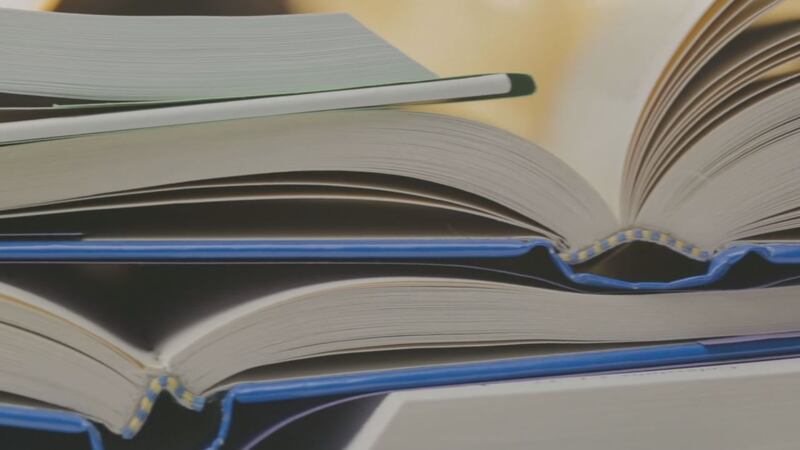ORANGE COUNTY, Fla. — The April press release was practically guaranteed to go viral. In an era of high polarization and increased attention on racial issues and prejudices in America, Florida would reject an unprecedented 54 math textbooks for not meeting state standards.
>>> STREAM CHANNEL 9 EYEWITNESS NEWS LIVE <<<
Notably, officials said, some of the rejections were because the books contained Critical Race Theory.
“This education establishment — it’s gotten increasingly politicized,” Gov. Ron DeSantis (R) said during a press conference. “They’re trying to do ideology.”
Naturally, there was an uproar. Math textbooks tend to draw more attention for putting students to sleep, rather than containing divisive social issues.
READ: Several Central Florida school districts may have to choose new math books for next year
Bombarded by Freedom of Information Act inquiries, the Florida Department of Education released a handful of examples of problematic problems shortly after their announcement, adding that the material in question was copyrighted and unable to be shared.
On Thursday, staff members provided the 5,825 pages of reviews completed by teachers across the state of Florida that laid out everything flagged in every book. According to the judges, of the more than 5,600 issues in the proposed textbooks, just a handful were due to Critical Race Theory or social and emotional learning, another banned concept.
READ: State rejecting dozens of math books leaves 1 option for K-5 students
7/ Most of the CRT boxes looked like this. Reviewers found a number of different ways to say the textbook passed inspection. pic.twitter.com/WgKSYn7Npd
— Nick Papantonis WFTV (@NPapantonisWFTV) May 6, 2022
The vast majority of the flags were mundane, related to curriculum or technological issues that few outside of the teaching world would have interest in. One big category was accessibility. State standards require videos to come with captions and for books to be accessible to students who don’t have internet or computer access. Many of the books encountered difficulty passing inspection on those counts.
Another big category was the structure of the learning. Educators require problems suited for all students who may to prefer visual, audible or hands-on learning. Numerous book sections were caught up because they weren’t flexible enough.
READ: Florida school districts left scrambling after state rejects record number of textbooks
4/ Another big category was the curriculum itself. Many lessons were deemed objectionable for relying too much on lectures or not having different types of example problems. pic.twitter.com/WuQouxYSKO
— Nick Papantonis WFTV (@NPapantonisWFTV) May 6, 2022
That wasn’t to say there weren’t problems with the more controversial sections of the grading rubric. Most of the flags were handed to social and emotional learning, an academic concept that focuses around the process of developing self-awareness and interpersonal skills that Florida bans from schools.
The textbooks that ran afoul of that law typically included follow-up questions that asked students to reflect on their performance or give themselves a grade.
READ: Florida Gov. DeSantis signs bill to limit discussion of race
8/ Social Emotional Learning is also banned. That came up more often. Many books asked students to reflect or grade their own performances as a follow-up. Not allowed, according to reviewers. pic.twitter.com/8gAbGrL4ca
— Nick Papantonis WFTV (@NPapantonisWFTV) May 6, 2022
Of the few flags involving potential Critical Race Theory, most went to a book section that has already been widely shared. A high school-level book used a data set that compared racial prejudice to political leanings, which one reviewer noted may make students uncomfortable with being a conservative as adults.
Some flags didn’t fit any of the usual categories. A few reviewers docked points from a book that used a TIME Magazine report on the wage gap in workplaces because it didn’t promote gender equality. A conservative-leaning reviewer took issue with a textbook author who said global warming was fact, and that its human origins were widely accepted by scientists. He also accused the author of bias for not saying “natural immunity” is an alternative to a coronavirus vaccine.
READ: Florida bans ‘critical race theory’ from its classrooms
9/ Lastly, there were flags that don’t fit any particular category. One reviewer wasn’t happy that a book called global warming fact, or that it didn’t name natural immunity as an alternative to a COVID vaccine. pic.twitter.com/HzJvEly5JU
— Nick Papantonis WFTV (@NPapantonisWFTV) May 6, 2022
Lastly, a few reviewers noted a different type of racial issue: not enough non-white kids. One said a book only portrayed Black children in sports-related photos, enforcing a stereotype. Books typically show diverse groups of kids in many different scenarios.
Publishers are already making adjustments to the issues flagged in books that didn’t make the accepted list. On Wednesday, the Department of Education said it made 19 additional books available to districts next year after revisions were approved.
WATCH: What is ‘critical race theory?’
Click here to download the free WFTV news and weather apps, click here to download the WFTV Now app for your smart TV and click here to stream Channel 9 Eyewitness News live.
©2022 Cox Media Group









